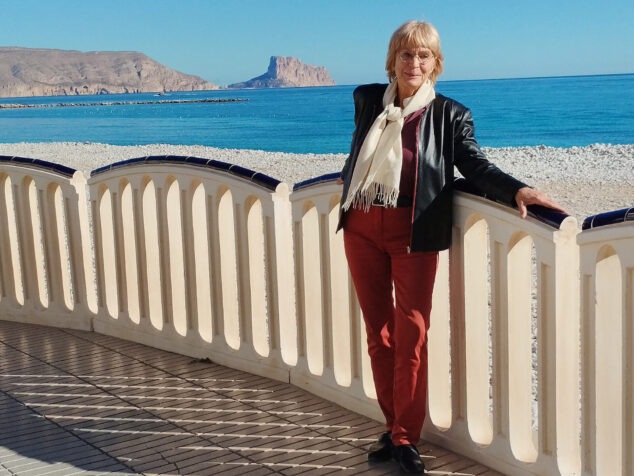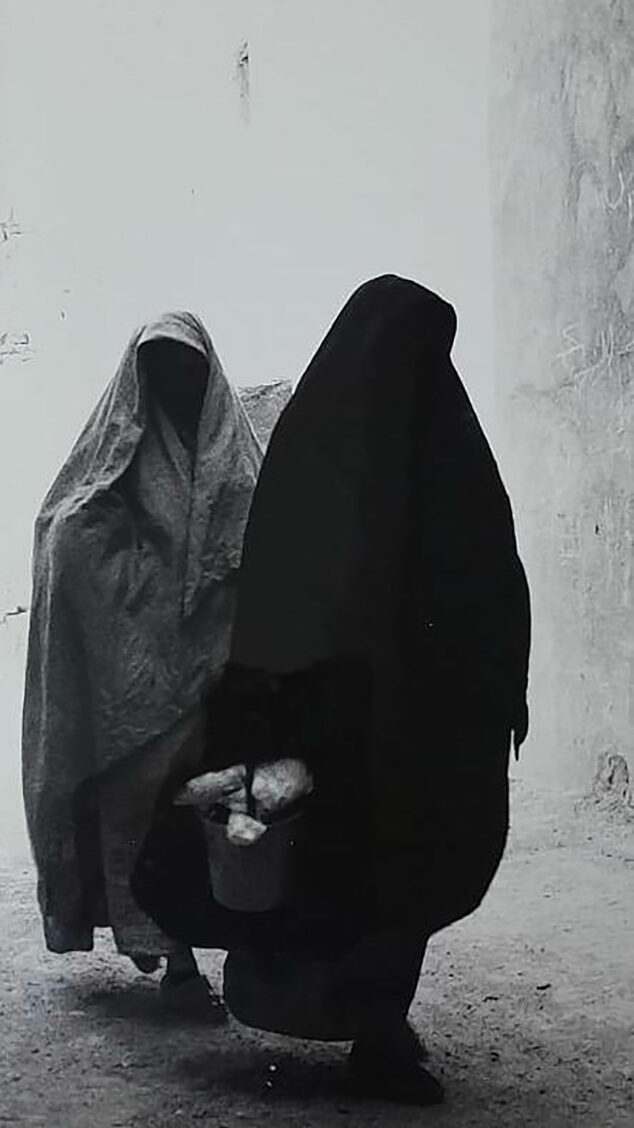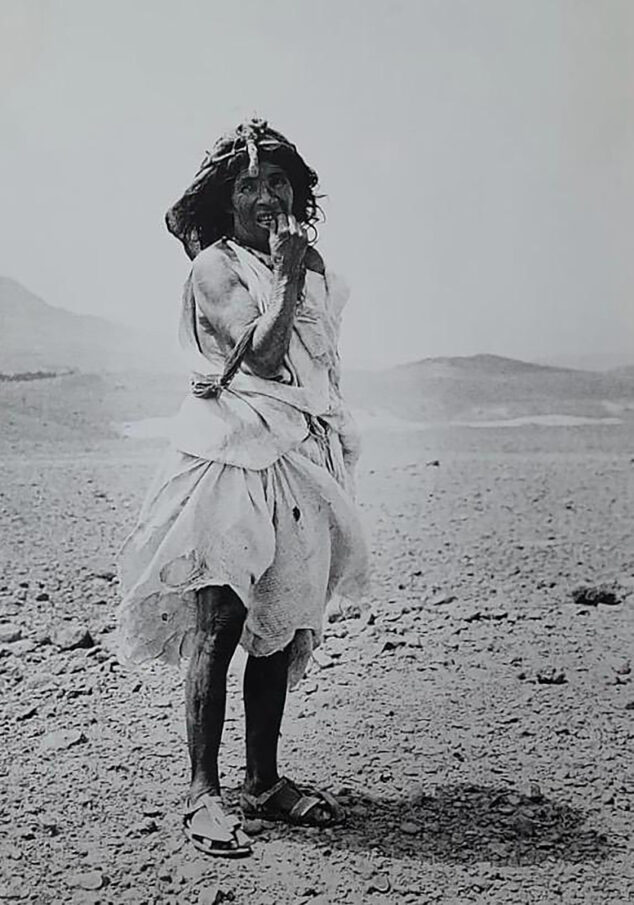Sibylle Schorlemmer is a German photographer raised in Altea who has traveled the world with her analog camera in hand and whose works focus on portraying women in the places she has traveled to. The professional explains her background: "I value the women in my images with respect and admiration for the great strength they have in society."
Less than a week before 8M, Schorlemmer has inaugurated the exhibition "Women of the World" at the l'Estació Art Center in Dénia. In it you can see the work of a life that has already been shown in exhibitions in Germany, Spain and Norway.
The artistic vein runs in the family. Her father, Eberhard Schlotter, was a painter and was the one who educated Sibylle to see colors, shadows and light when they lived on the Mediterranean coast (they arrived in Altea in 1956). «I was also inspired by my grandfather on my mother's side, as he was an architect and took photos of buildings around 1910, they were fabulous. "He showed them to me and I admired them," she explains.
Schorlemmer began her career as a photographer in the 70s, when men still predominated in the profession. "At that time, photos taken by women began to appear in publications, but the majority were still by photographers," she says. The German studied at the Munich School of Photography and then worked four years as a fashion photographer at Lux Foto Studio in Frankfurt.
“I would have liked to be a fashion photographer,” she admits, but she had to move because the man she was married to at the time got a scholarship to go to England as a scientist. However, Sibylle has traveled the five continents on different trips and has managed to capture the essence of women in each of them.
Photographer stories
When Sibylle sees again the photographs she captured years ago, she feels "great satisfaction from what she has experienced" and many of them have stories behind them.
The photographer remembers one of those that impacted her the most: «On my trip to Bolivia in 1976 I took a photo of a woman sitting on some rags selling vegetables, the little she had, in a market. She told me that she had a baby that she wanted to give me because with us she would have a better life. I never forget it. In Bolivia that year, 40% of children died from tuberculosis," she laments.
Other stories are funny, like the time a woman got angry when I unexpectedly took her photo: "She almost threw the melon she was carrying," Sibylle confesses with a laugh, although she acknowledges that those moments helped her gain experience.
How do you take a good photo?
"I have always taken and do my images for myself, I do not make a living from photography and I do not depend on someone to tell me how to do it for sale," explains the professional about her position.
The portrait is her star work, although the photographer does not like to take pictures of herself. "I don't look bad, but I prefer to take photos of others," she jokes. In this sense, the professional says that it is complicated when a person asks her that she wants to look beautiful, since on her part she tries to make it as natural as possible.
To take a photo, the German looks at nuances such as light and shadows, perspectives, materials, nature and the human being himself. Her images usually appear in black and white because, she clarifies, "the lack of color gives a little more room for interpretation."
Photography in the 21st century
The woman who enjoyed using her 6x6 analog camera does not like the digital camera, even though it is the one she uses now: "For my taste, everything is too clean, too correct." She is also "scared" that nowadays anyone considers themselves "an expert" taking photos with their cell phone and bragging about them.
Sibylle has also perceived a change regarding the image of women in recent years, since, as she explains, "in the most recent images, women are more proud and conceited, modern in every sense, she is present, confident, strong".
Faced with this new world, the professional gives several pieces of advice to new generations of photographers: among them, studying the history of photography from the beginning - especially the works of Christina García Rodero and Isabel Muñoz - but, above all, "develop concerns and be sensitive to perceive the environment.










Great article, very interesting! Looking forward to seeing the exhibition... which is always culture and from which there is a lot to learn about all women. Congratulations!!!!
Sibylle is a great professional and an exceptional woman, and her manifestations are visible. I met her when we were both children, and she was already beautiful. Although she has not had it easy at all, she has inherited the strength and expressiveness of her father and the beauty of her mother. A big hug for her and congratulations on the article!!